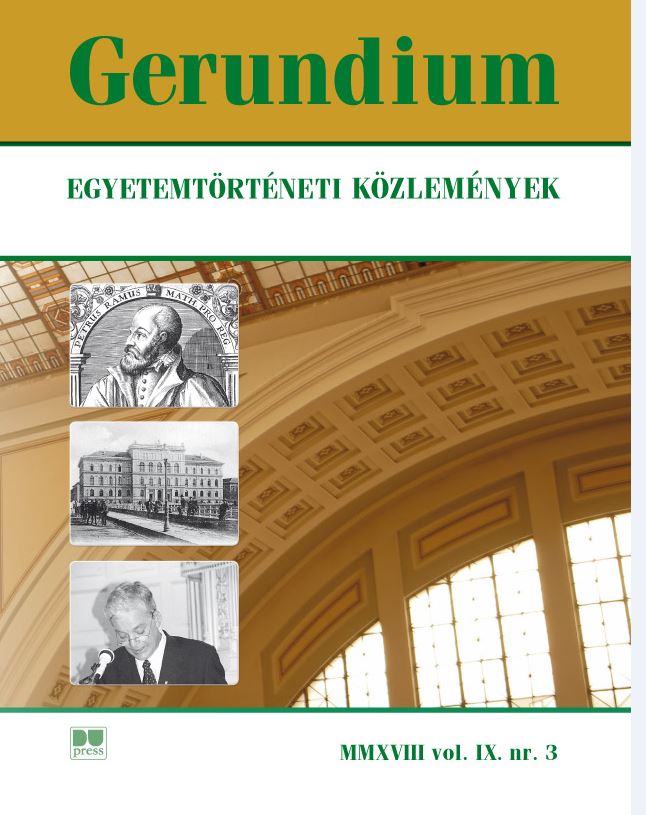A nyugat-európai akadémiai tanulmányok és a magyarországi rámizmus
Szerző
Megtekintés
Hogyan hivatkozzuk
Absztrakt
Studies at Western European Academies and the Hungarian Ramism. Recent schools of the history of ideas do not study the „influence” of one outstanding personality primarily but more the way numerous thinkers receive and utilise elements of the sets of ideas connected to the name. It is especially true in the case of Petrus Ramus. The interpretation of Ramism is not feasible if we focus on exploring one coherent intention of the author (or several of them). It seems more fruitful to study the multi-faceted community of interpreters that was driven to hold certain positions by personal conviction, institutional needs, or confessional identity. These people found the suitable framework for asserting their positions in one or the other of the many processes of Ramism, that is, they connected their aspirations to paradigms that they believed to be Ramist. His earliest acquaintances from Hungary and Transylvania met Ramus in Paris, several of them before his conversion to Protestantism (1561). Outlining these early connections poses no problem, since there are only a handful of Hungarians who had personal connection to him. All of them are members of the humanist elite, professional philologists. The influence of Ramus that came from the German academic world to Hungary and Transylvania seems far more important than the sporadic and haphazard personal connections. These influences are much more multitudinous, because they grow out of the system of connections organically embedded in the studies of Hungarian youngsters at foreign universities. Obviously, Ramus could affect Hungarian and Transylvanian young people by this way only after his reception in Germany started to take shape. This means that this aspect of the processes can be discussed beginning with the 1570s. Early traces are sporadic, and a deeper, systemic influence on thinking and history of ideas in Hungary and Transylvania by Ramism is relevant only from the early 17th century.


 https://doi.org/10.29116/gerundium/2018/3/3
https://doi.org/10.29116/gerundium/2018/3/3





